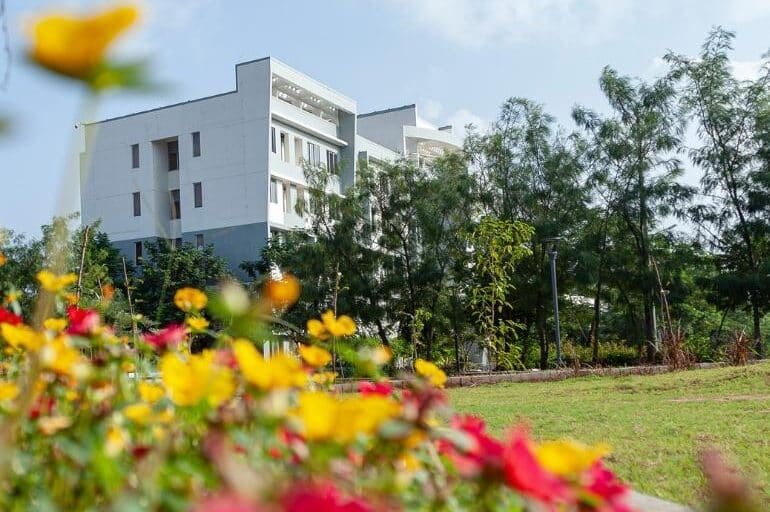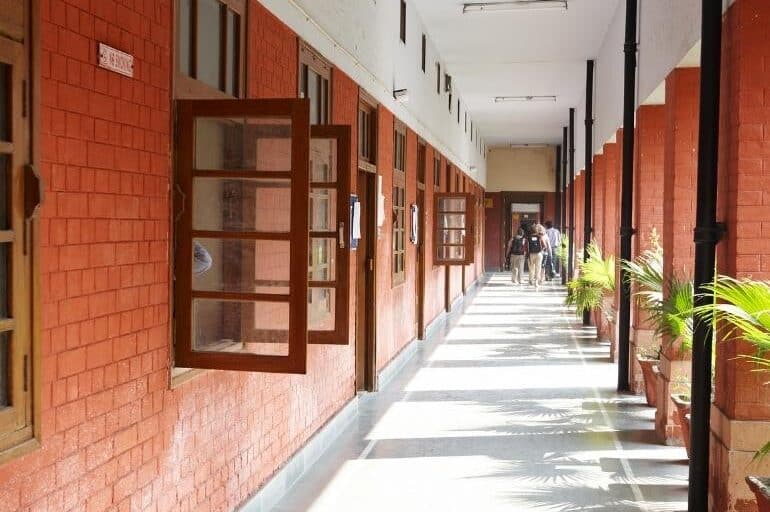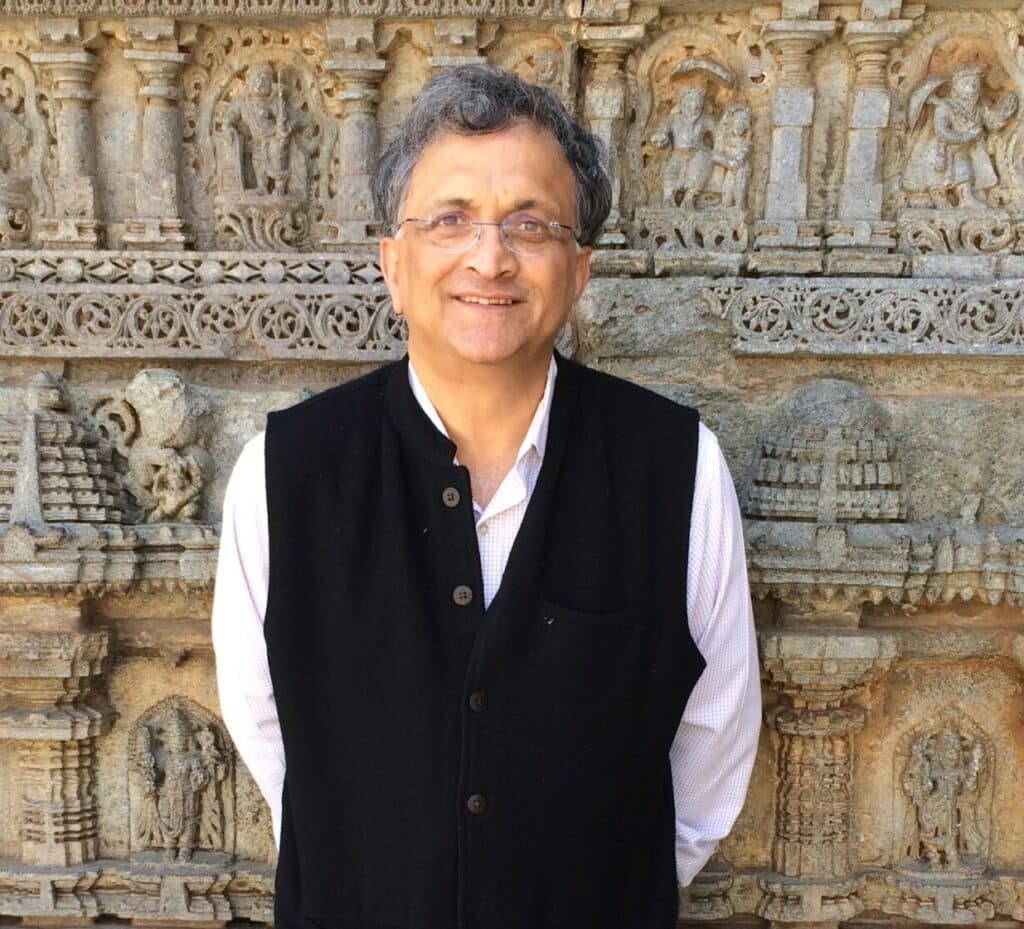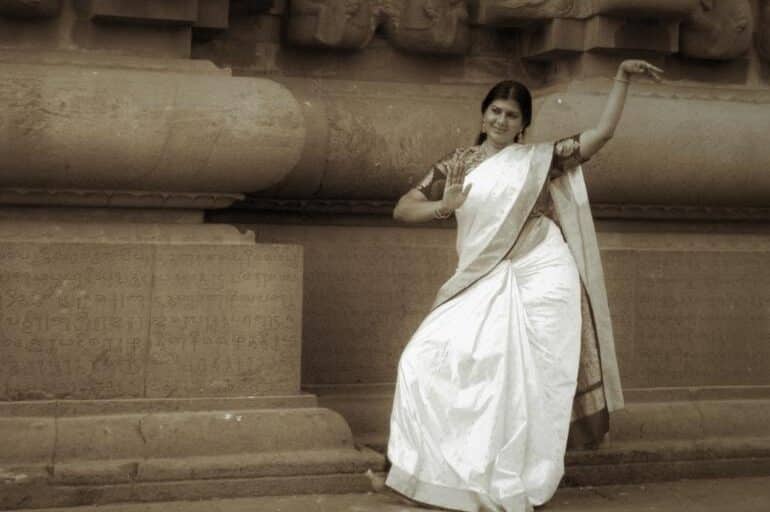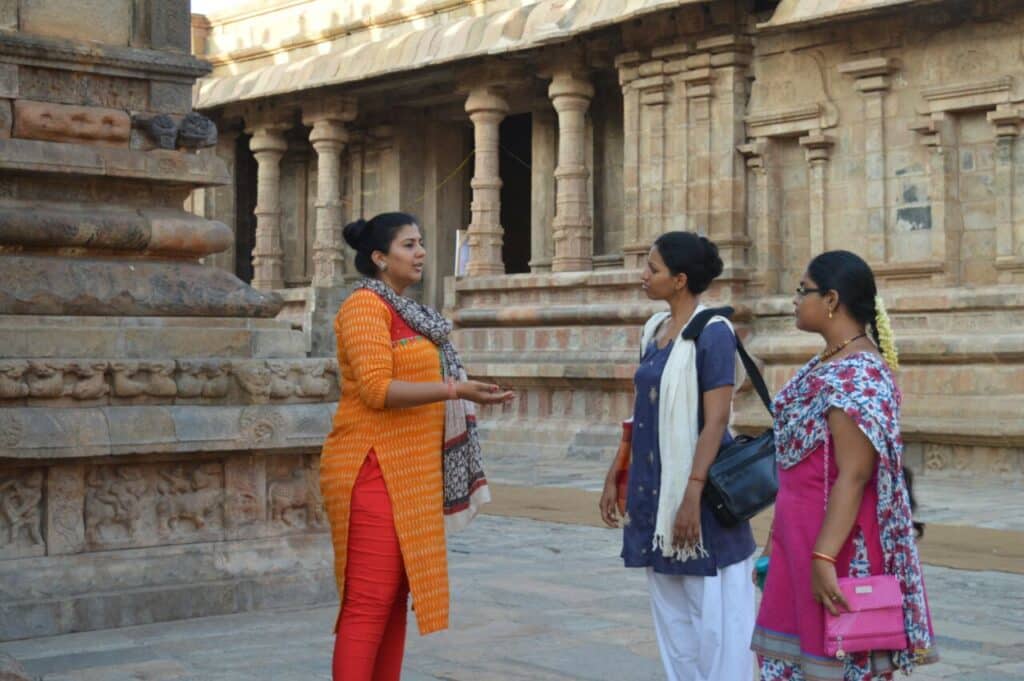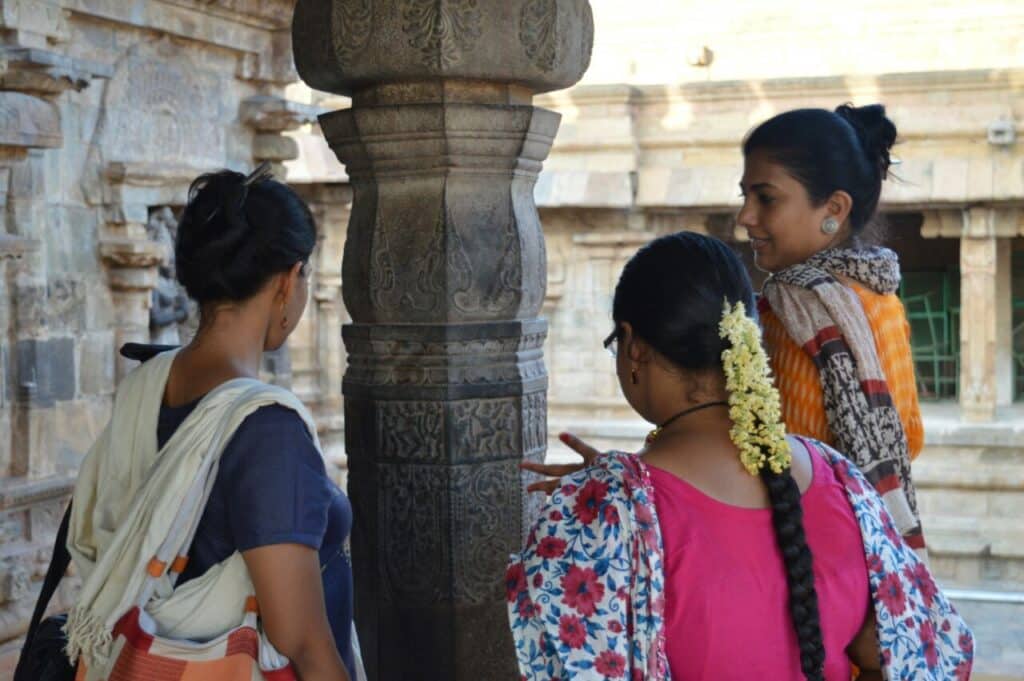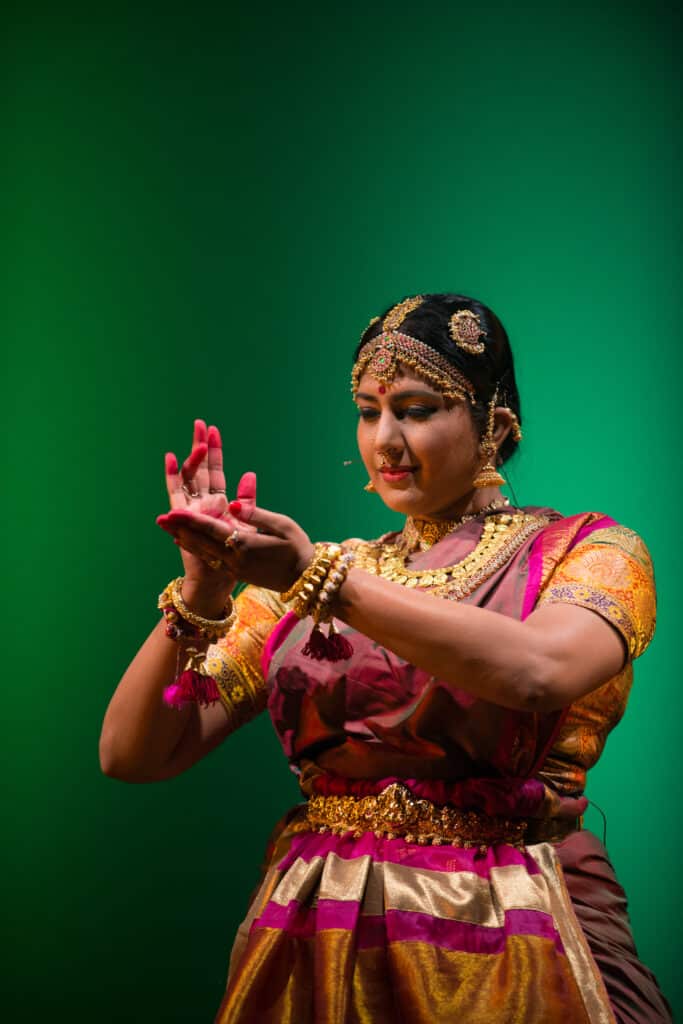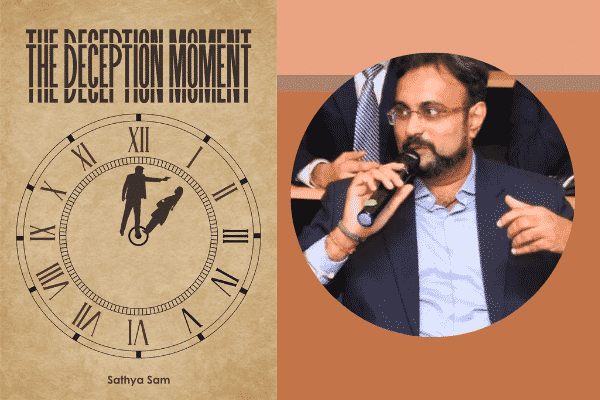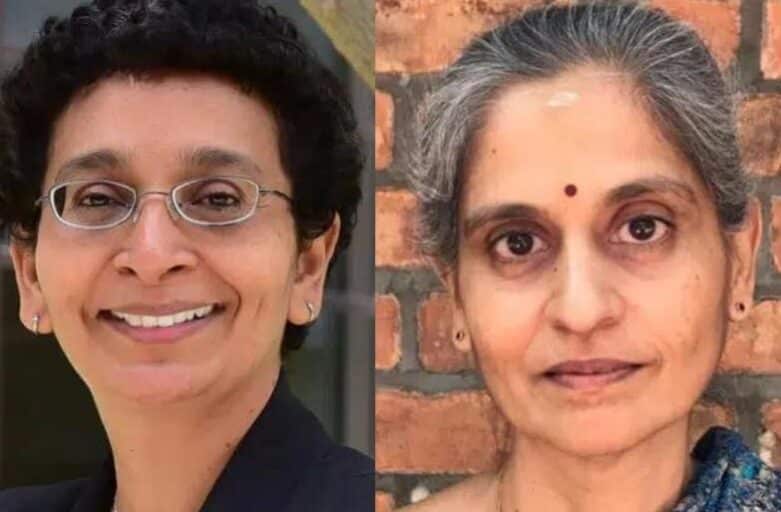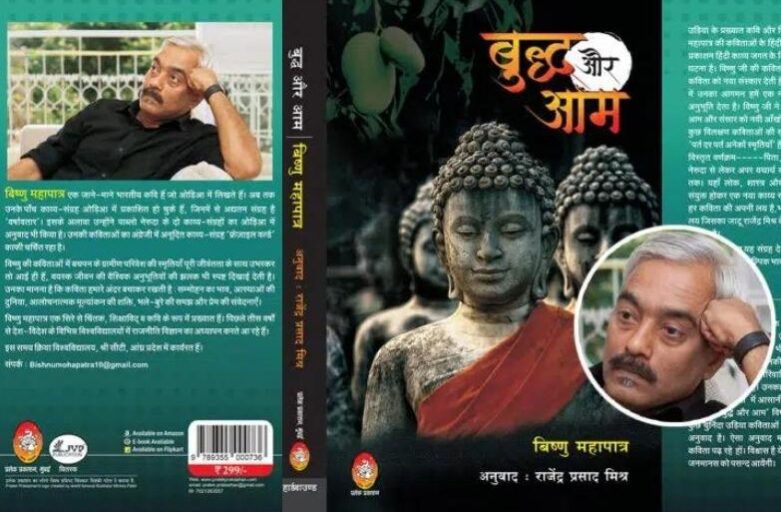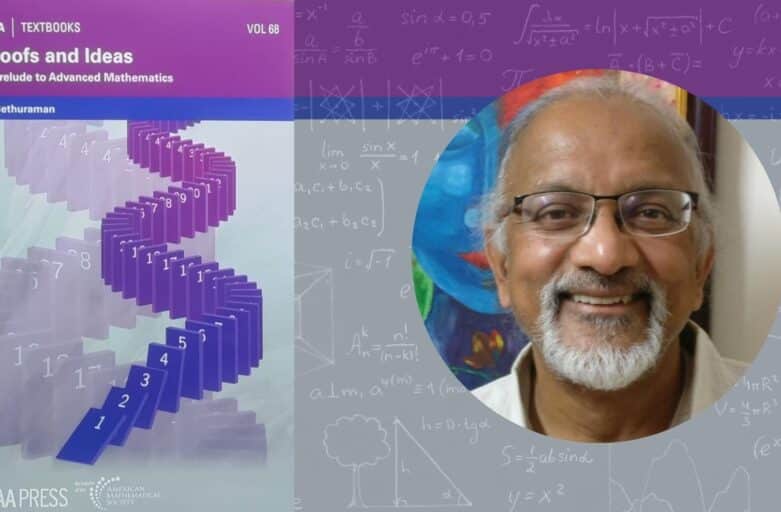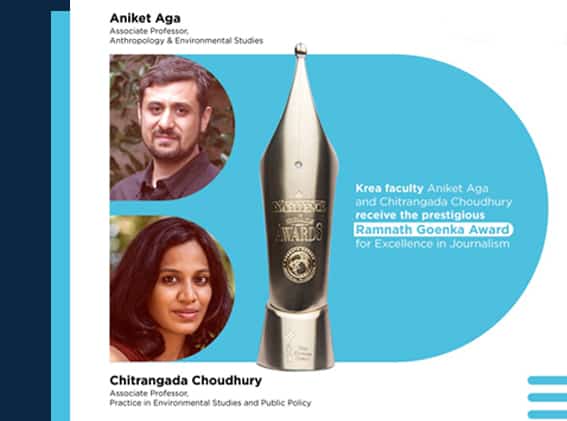Short Snippets From Researchers at Krea
They are inquisitive in their pursuit for answers, meticulous in their approach to data, and tenacious in their adherence to the principles of scientific reasoning. Krea faculty are educators, institution builders and passionate researchers. We asked some of them about their take on research – their inspiration, focus and approach to the process of discovering new knowledge. Through a series of short snippets, we present to you their insights into the fascinating world of methodological and systematic research.
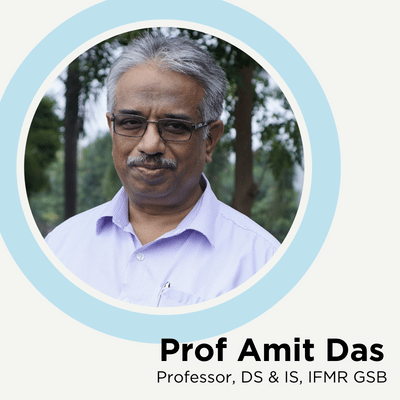
Theory, evidence, analysis.
What are the three words that you think of when you hear the word “research”?
Q: Why research – what inspires & motivates you to do research?
A: To understand phenomena better, to influence their outcomes (if possible).
Q: What is the focus area of your research?
A: Use of information systems to improve individual and organisational performance.
Q: What, in your opinion, are the key features of a research mindset / research mentality?
A: Well-read (broad and deep), analytic mindset, clear communication.
Q: Your piece of advice to young researchers: how to succeed at research?
A: Ask interesting questions, analyse evidence thoroughly, communicate results and implications clearly.
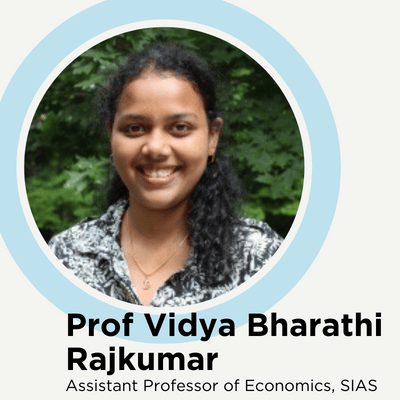
Interesting, Important, Insightful.
What are the three words that you think of when you hear the word “research”?
Q: What are the three words that you think of when you hear the word “research”?
A: Interesting, Important, Insightful.
Q: Why research – what inspires & motivates you to do research?
My decision to pursue academic research simultaneously meets two personal goals: engage in an intellectually fulfilling career that is a good match with my skills and interests, and use my analytical strengths to work on important and real problems that I deeply care about. I find the economic way of thinking to be natural and intuitive, and I am inspired by the idea of applying economic principles to understand and improve the lives of disadvantaged people.
Q: What is the focus area of your research?
A: I am an applied development economist, and I study topics at the intersection of gender, development and public policy. I am particularly interested in questions that explore the role of gender norms and women’s autonomy in different realms of the society.
Q: What, in your opinion, are the key features of a research mindset / research mentality?
A: Commitment to a life-time of intellectual curiosity and continuous learning, the ability to stay thorough and consistent while always keeping the big picture in sight, and most importantly, patience and perseverance.
Q: Your piece of advice to young researchers: how to succeed at research?
A: Always remember your ‘why’, the reason you decided to take up research in the first place. Learn to enjoy the process – research is highly non-linear, be prepared to welcome the highs and lows. Show up every day, and work on questions that truly matter to you!
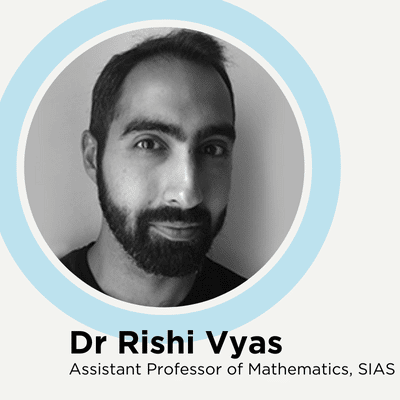
Fascination, challenge, and excitement.
What are the three words that you think of when you hear the word “research”?
Q: Why research – what inspires & motivates you to do research?
A: The chance to think about some very beautiful ideas. The challenge of tackling interesting problems. The excitement of better understanding phenomena that you initially found initially mysterious, and learning about and discovering new ideas.
Q: What is the focus area of your research?
A: I am a pure mathematician, with primary research interests in algebra.
Q: What, in your opinion, are the key features of a research mindset / research mentality?
A: As obvious as it sounds, you should be curious about and fascinated by what you are hoping to better understand. You need to be motivated, persistent, and willing to work very hard. You should have a fundamental openness to new ideas, to sharing ideas, and to reconsidering your own perspectives in light of new information. This includes speaking with other researchers about their and your work, reading what others have written, and understanding connections between your work and the work of others.
Q: Your piece of advice to young researchers: how to succeed at research?
A: When you’re young (defined broadly as the first ten or so years after you begin your undergraduate degree, say) try to read, listen, and understand as much about your chosen discipline, in both the broad and narrow sense, as you can. Really invest your time in building a broad, deep, solid foundation. Of course, as an academic you should never stop learning or exposing yourself to new ideas, but you will really benefit from hard-wiring yourself with the fundamental ideas, vocabularies, and intuitions of your discipline at a young age. Invest your time in building connections and working with other researchers, both young and experienced. Develop the habit of attending seminars, colloquia, and talks, even if they are hard to understand at first. Choose the initial research problems you work on with care, and under the advisement of those with experience. And have fun!
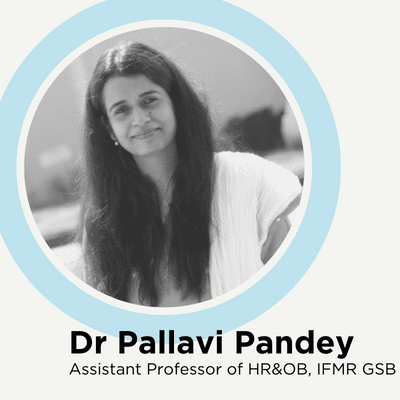
Meaningful, Rigorous, and Valuable contributions to society.
What are the three words that you think of when you hear the word “research”?
Q: Why research – what inspires & motivates you to do research?
A: Research gives me the opportunity to solve society’s real problems. With those intentions, if my work gets published, it brings immense satisfaction to me. It is a reflection of how I am using my knowledge for the betterment of society. It has also taught me a few virtues of life; the importance of patience, dealing with rejections, and time management. I consider it as my life transformation tool.
Q: What is the focus area of your research?
A: My research interest concerns employee discrimination, diversity and inclusion issues, and happiness in the workplace.
Q: What, in your opinion, are the key features of a research mindset/research mentality?
A: A mindset of creating a positive impact, a mindset of hard work, a mindset of right intention, right effort, and right concentration.
Q: Your piece of advice to young researchers: how to succeed at research?
A: Succeeding in research has the following conditions:
– Spend a great deal of time understanding the problem statement. This will entail what research approach to follow.
– Talk to the experts in the field and other stakeholders (actors) from the beginning till the end. They are valuable data sources. Discuss your findings or opinions with them; this will ensure a holistic understanding of your field.
– Research is one of the fields where shortcuts never work; there are no quick fixes; therefore, one should not compromise on their effort.
– Get into the habit of reading and writing. Scientific knowledge comes from various sources; limiting yourself to one stream or area will make you an average researcher.
– Most notably, aspire to live an extraordinary life! Discipline and hard work are essential mantras of succeeding in research.
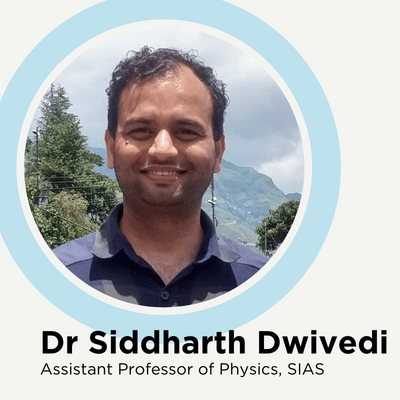
Papers, Chai and Patience.
What are the three words that you think of when you hear the word “research”?
Q: Why research – what inspires & motivates you to do research?
A: Even before my first thought of pursuing an academic career, research had a pull factor for me. I wanted to do a PhD to give a decent closure to my academic journey and also advance my training in the subject of Physics. But it was during my PhD studies that the idea of a full-time academic career matured. This happened for two main reasons. Firstly, I liked the subject and wanted to learn more about it. Secondly, research as a career gives one a chance to develop one’s own learning curve at a pace one is comfortable with, and keep growing in the process. There may or may not be celebratory milestones, but if you keep at it, every day you add on to your value as a professional.
Q: What is the focus area of your research?
A: My research focuses on searching for hints of new physics at high energy particle collision experiments like the Large Hadron Collider at CERN. The idea is that we already have a widely accepted and standard framework of how the various fundamental particles are expected to behave when they interact with each other. But there are various experimental observations and theoretical issues that hint towards the fact that this framework, known as the Standard Model, may be incomplete. So the task at hand is to study the behaviour of these particles in very high energy collisions and try to quantify the deviations from the expected patterns of interactions in such experiments.
Q: What, in your opinion, are the key features of a research mindset / research mentality?
A: I think the most important quality of a research mindset is being more process oriented than result oriented. This is because in research, more often than not, one does not know if the line of inquiry or the method used is correct or not. The only way to make progress is to take the next step and course-correct oneself along the way. Another important element that helps is to always be ready to learn new skills, be open to new ideas etc. Today, the landscape of any discipline changes at a very fast pace, and we need to keep ourselves updated in terms of the know-how of the field.
Q: Your piece of advice to young researchers: how to succeed at research?
A: My advice would be to constantly keep adding to your skill sets, keep getting better and better at what you do, and let this be an attitude that you carry till a much later stage in your career. Another helpful thing would be to keep interacting with colleagues from other areas or subjects and learn about what they are doing. This will help you better contextualise your own research, and you will not feel like an island.
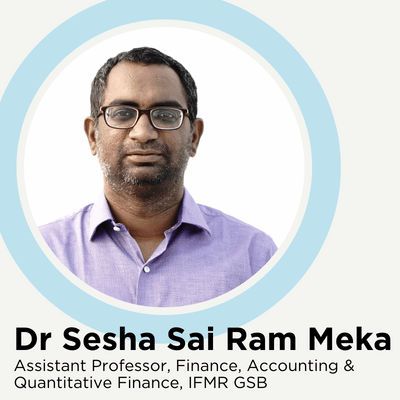
Understanding the world (field) better.
What are the three words that you think of when you hear the word “research”?
Q: Why research – what inspires & motivates you to do research?
A: I research to understand the field better.
Q: What is the focus area of your research?
A: Corporate Investments and Credit Rating Agencies.
Q: What, in your opinion, are the key features of a research mindset / research mentality?
A: Passion, patience and hard work.
Q: Your piece of advice to young researchers: how to succeed at research?
A: The qualities (passion, patience and handwork) increase the probability of success, and nothing is guaranteed. I don’t think there is a defined path to success. It is like entrepreneurship; we have to take risks and sometimes we succeed.
